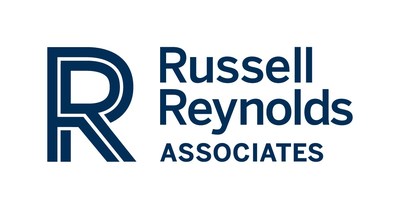 |
Diversity and Inclusion Pulse surveying over 2,100 executives reveals the importance of committed leadership for success in diversity and inclusion strategies
NEW YORK, Sept. 20, 2017 /PRNewswire/ -- Russell Reynolds Associates, a leading global executive search and leadership advisory firm, today announced the findings and recommendations from their survey, Diversity and Inclusion Pulse: 2017 Leader's Guide. The study surveyed over 2,100 male and female executives around the world to understand how companies align around diversity and inclusion (D&I). The study examined how executives perceive their organization's D&I strategy and the barriers faced in executing it effectively. The study shows that the success of a D&I strategy is primarily dependent on committed leadership. The final results of the study provide actionable insights leaders can use to maximize the benefits a diverse workforce promises within their own organizations.
The study also reveals a need to elevate inclusion to the importance of diversity. Fewer than half (47%) of executives surveyed say that their organizations have a clear, holistic understanding of diversity, but the number drops even further when looking at inclusion. Just 24% of executives say they are aware of a definition of inclusion. Russell Reynolds Associates defines "inclusion" as the establishment of an environment that creates opportunities for all employees to realize their unique potential. An inclusive culture is what unleashes the power of diversity and instills a sense of belonging, which is the extent to which individuals feel they can be their authentic selves within the organization.
Even though the study shows that senior executives realize the importance of D&I—74% believe D&I is crucial to the success of their organization—only 50% say their leaders make a visible effort to support D&I. Even fewer (38%) say their leaders hold themselves accountable to create inclusive cultures. More than a quarter (27%) of executives surveyed say their company has no D&I strategy at all. Overall, the survey finds that despite the general consensus that D&I is important, company strategy and leadership commitment fail to position their organizations to realize the full benefits of their diverse workforce. Yet companies that have committed leaders experience more effective and successful D&I agendas.
"Companies with a proactive and authentic approach are better positioned to compete globally, understand their customers and innovate. We know that D&I is a business priority for our clients, and for decades we have helped them build more diverse teams and inclusive cultures," says Jamie Hechinger, one of the leaders of the Diversity and Inclusion Practice and global leader of the Social Justice and Advocacy Practice.
Russell Reynolds Associates recommends six critical steps for leaders when creating a comprehensive D&I strategy:
"Our new research shows that in spite of the clear advantages of committing to a D&I strategy, many companies still struggle to execute it effectively. In order to ensure real progress toward these goals, leaders need to evaluate policy and processes, and be public in modeling inclusive behaviors," explains Amy Hayes, a leader of the Diversity and Inclusion, Assessment and Succession Planning Practices.
Methodology
Russell Reynolds Associates surveyed over 2,100 executives around the world to understand how companies align around diversity and inclusion. The study defined "diversity" as a number of attributes including gender, race, ethnicity, religion, national origin, age, sexual orientation, gender identity and expression, disability, veteran status, political affiliation, education, experience, work style, communication style, socioeconomic background, cross-cultural competency and perspective. For the purposes of this study, "inclusion" is defined as the establishment of an environment that creates opportunities for all employees to realize their unique potential. "Belonging" is defined as the extent to which individuals feel they can be their authentic selves within the organization. The study used these definitions to test the impact of D&I on human capital benefits, including decreased intent to leave, increased employee engagement, increased creativity, greater employee belonging and diverse talent retention.
About Russell Reynolds Associates
Russell Reynolds Associates is a global search and leadership advisory firm. Our 400+ consultants in 47 offices work with public, private and nonprofit organizations across all industries and regions. We help our clients build teams of transformational leaders who can meet today's challenges and anticipate the digital, economic and political trends that are reshaping the global business environment. From helping boards with their structure, culture and effectiveness to identifying, assessing and defining the best leadership for organizations – our teams bring their decades of expertise to help clients solve their most complex leadership issues. www.russellreynolds.com
| Contact: |
Vijaya Singh |
| Russell Reynolds Associates |
|
| 212-351-1987 |
|
Photo - https://mma.prnewswire.com/media/558412/Diversity_and_Inclusion_Infographic.jpg
Logo - https://mma.prnewswire.com/media/491408/Russell_Reynolds_Associates_Logo.jpg